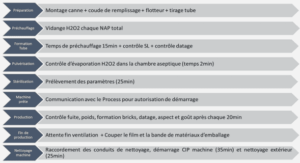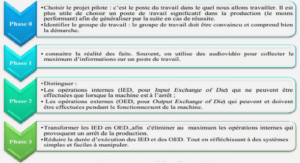Feminism in chinua Achebe’s Anthills of the Savannah
Physical violence
African women are exploited for economical purposes. Even in traditional Africa, many tasks are given to women. The latter heartedly devote to help their families from their early childhood. As we notice this phenomenon in The Family by Buchi Emecheta who points out the difficulties Gwendolen faces when she lives with her grandmother. The latter takes her granddaughter for a servant, for Gwendolen is either doing the housework or going to the farms. This situation of black women, particularly African, is one of the most hardships our female folk suffer.Therfore, Gwendolen as a little girl is exposed to many dangers because of the kind of tasks she performs. For instance, as a little girl she often goes to the forests for getting honey. Granny Naomi prefers Gwendolen‟s help on the farms to the detriment of education. “But June June, you such a help on the farm.” Granny cried “Me want you to lean education. Education is good thing but we produce little honey these days, not enough to buy bread and beans.”3 Granny Naomi‟s point of view bears full evidence that what her society expects from a girl is not high education but rather resistance for enduring hard labors. Even in the Senegalese context, many parents do not send their daughters to school just because they are helpful on the farms and on the house works. So girls are supposed to be trained for domestic services not more. Further, Granny Naomi said: “school costs money, Johnny.Dem school uniforms, books and parents losing the help the child give at home and on the farm”4 . For her, the importance of a girl is reduced to help her parents on the house works instead of going to school. Because the family, in order to meet their needs everybody has to participate. In Ngugi WA Thiongo‟s Devil on the cross, Wariinga, the protagonist of the novel is exploited by her aunt and uncle. She remains a brilliant student despite the tasks she always does at home. She is cooking, washing, sweeping the yard, to name a few.
Solidarity
Solidarity is one of the hallmarks of any kind of struggle. Women join their forces to help themselves .They indulge in assisting one another in order to become more powerful and be able to face their difficult conditions caused by a male-dominated society. “Glagys Odowis knew that Sonia could not understand her BBC English at the best of times, to say nothing of what she was feeling. Sonia hid her and her children from her husband for three days”32 . Beatrice assists Elewa to carry her baby safely. After Elewa‟s delivery; Beatrice adopts both the mother and the baby. Here, she plays the motherly role to Elewa during the time of her bereavement. As for Agatha, she finds refuge in Beatrice‟s house where she lives comfortably and practices her religion without being troubled. Thanks to Beatrice, Agatha forgets her situation of maid. Because she is now part and parcel of Beatrice‟s family. They share many things and discuss any kind of topics regarding women‟s subjugation. Here, Agatha is no longer the kind of servant who has no right to participate in debates .On the contrary; she is allowed to say what she thinks about Kangan‟s treatment of womenfolk. In a nutshell, Beatrice supports the women in Anthills of the Savannah as she teaches them to rely on themselves not on men. Therefore, she can be considered as the rallying point for all the 30- Achebe Chinua, Anthills of The Savannah, op cit p 106 31- Achebe Chinua, Anthills of The Savannah, op cit p 110 32- Emecheta Buchi, The Family, op cit p 61 girls that are in trouble. Gladys, too cheers Sonia up when she suffers from both her dead husband and her pregnant daughter out of wedlock. Gladys tries to do the same as Sonia does when she had problems with her husband. So; it is a mutual support from each other as it is mentioned in The family: “Gladys and Sonia had decided to go and see Gwendolen that evening. It was to be a surprise visit .They had decided to choose an evening because Gladys worked during the day. Gladys did not have much time for herself, what with her family, her job her studies. But she felt that Sonia was a friend; a friend who stood by her when she was having her own marital troubles. Also an instinct was telling her that Sonia needed a close friend. She could tell that she had not fully recovered of Winston‟s death. Winston, though a quiet person was a man with a presence. Such a person is not easily forgotten. Gladys could see beyond the veneer of Sonia‟s present forced cheerfulness.” 33 This passage is a full evidence of women‟s solidarity among themselves. So, Gladys‟s presence is very important to help Sonia forget about her sorrow and set for a new life. Female solidarity and complexity are revealed in Efuru and Ajanupu since they are closer friend. Besides, the latter turns out to be her comforter and adviser. She is also one of those who defend Efuru from gossipers when she cannot have a baby in the very beginning of her marriage. She plays the role of a guardian angel to Efuru. In addition, she is very experienced as far as motherhood is concerned for; she has been the mother of eight children. She was helped in her first and second deliverance, but she has delivered the other babies without any support. Ajanupu knows a lot about pregnancy, as a result she is ready to give Efuru all the advice she needs for the safety of her baby. For instance, she tells Efuru what she should eat and what she should not eat. Ajanupu acts as a midwife when Efuru gives birth. So, she assists her during the tough moments by encouraging and strengthening her. Fortunately she gets through giving birth to a female child without much trouble. Ajanupu cares a lot about Efuru, which is usual to old African women. Later on when Efuru‟s child is sick, it is Ajanupu who plays the motherly role to both Efuru and her child.
Shelf- determination
Efuru is highly a respected woman of her village .She is an Igbo woman and a successful trader. In order to meet the needs of traditional beliefs, Efuru as a woman makes considerable efforts in order to pay the dowry after leaving for Adizua‟s house. In fact, her husband is a poor farmer, who cannot even afford to pay the dowry. So Efuru a virtuous woman uses the money she earns from her trade to pay the dowry by herself. And Efuru, to cover her husband‟s shame comes back home the day the dowry is supposed to be paid to Nwashike Ogene, Efuru‟s father for, the dowry is compulsory for him and is part and parcel of his daughter well-being in her household.: “As there were drinking the dowry was fixed and Aduzua‟s people paid everything there .They drank and when the ceremony came to an end, Efuru‟s father called her and her husband and blessed them and give them some words of advice. They went home and for the first time since that fateful Nkwo day the two felt really married” 46. Through this message Flora Nwapa tries to show Efuru‟s courage 44- Ba Mariama, So Long a Letter, op, cit p 77 45- Ba Mariama, So Long a Letter, op, cit p 87 46- Nwapa Flora, Efuru, op, cit p 24 and ability to take important decision. As an independent woman, she dares confront her father and the other men of her family such as brothers and uncles to the great advantage of her husband. The latter is not of Efuru‟s kind because he is a stranger to Efuru‟s relatives who are well known throughout the village and thereabouts. Efuru forgets the laws pre-established by her family‟s traditional values and chooses the man she wants to marry in spite of her father‟s will. It is insufficient that Achebe the icon merely acknowledges the injustice of his earlier treatments of women. Like Ngugi wa Thiong o’s female characters Wanja (Petals of Blood), and Wariinga (Devil on The Cross), African women are playing active roles in their nation‟s histories by resisting « being pushed or tempted into accepting subservient or degrading or decorative roles » . They are developing what is termed « the will to change ». Flora Nwapa published Efuru. Significant in African feminist scholarship, it signals a longawaited departure from the stereotypical female portraiture in male-authored African literature. The eponymous Efuru chooses her own husband and marries without his paying a dowry. She decisively deals with conflicts, radically departing from the script of the traditional African woman « in the peripheral, tangential role of a passive victim of a masculine-based cultural universe”. But Efuru is plagued by infertility, polygamy, infidelity, and abandonment by two undistinguished husbands. She finally abjures marriage, opting for meaningful singlehood as priestess of the goddess of the river, Uhamiri, vindicator of victimized womanhood. In Idu, Nwapa again embarked on a revisionist course, now making a man responsible for infertility. Though in a similar vein the Ghanaian writer Ama Ata Aidoo published a play, Dilemma of a Ghost. Nwapa was for a long time the lone African female novelist‟s voice lamenting patriarchy. The prolific Buchi Emecheta joined the fray with The Joys of Motherhood. As the female Nigerian critic, Chikwenye Okonjo Ogunyemi, writes: „If Nwapa is the challenger, Buchi Emecheta is the fighter…‟ For the first time, female readers through female characters are aware of their subjugation by their fathers, uncles, husbands, brothers and sons. This is a kind of freedom that Nwapa displays through Efuru‟s decision when she refuses to be placed in the traditional position where women used to be subordinated. When Flora Nwapa (1930-93) started writing in 1966, she was the first published Nigerian and African female writer. Her writing interest was women and her motive for writing was to correct the disparaged image of women in male-authored novels. She started from the grassroots and situated her women characters in the village environment with its masculine supremacy and dominance where gender roles and relationships were strictly circumscribed by norms and tradition. Her first two novels Efuru (1966) and Idu (1970) featured village women who though unlettered, were accomplished and distinguished in their societies. Efuru was imbued with beauty, intelligence, industry and economic power. She was successful in life but not fecund. Her feminism shone forth in that she was able to marry her first husband without the requisite dowry. She was able to live down the shame and abasement of two failed marriages and exercised her right of choice of staying married or returning to her father‟s house. She was still admired and respected at the end of the novel. Idu, the protagonist in the eponymous novel shattered convention by choosing death rather than succumb to a levirate marriage at the demise of her husband. In Nwapa‟s One is enough she continued with the exploration of the woman‟s options in the face of subjugation and victimization in marriage. She highlighted further, the paramount issue of childlessness in marriage. Amaka, after six years of marriage without children, fled from her marital home and her adulterous husband who had fathered two sons with another woman unknown to Amaka. Her city refuge opened up vistas in self-fulfillment due to her guts, industry and tenacity. In the permissive environment of the city, she became the mother of twin sons. But she would not marry the twins‟ father preferring her new freedom because she said “one marriage is enough for a lifetime.” 47 Buchi Emecheta in her novel The Joys of Motherhood presents to us the character of Adaku who in her marriage had two daughters. Her position in the polygamous home was not assured because she had no son as her co-wife Nnuego. She walked out of her marriage into prostitution to make money to ensure the future of her daughters. Nwapa‟s female characters in these and her subsequent novel Women are Different broke societal norms in order to assert themselves. The significant point here is that the women
Introduction |






